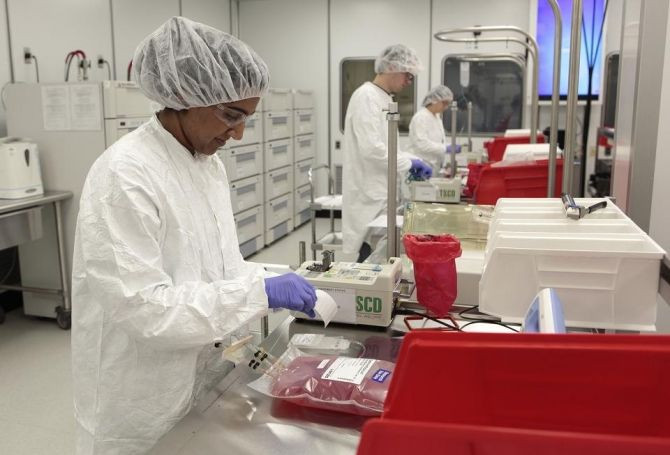'Fantastic Potential': Researchers Keep Cells Alive Away From Body

Georgetown researchers say they have just significantly changed biomedical research.
Researchers know that normal cells don’t last long once removed from a human, dividing only a few times in a laboratory setting. Common cancers won’t grow in a lab.
That’s about to change.
Senior investigator, Richard Schlegel, M.D., Ph.D., and chairman of the department of pathology at Georgetown Lombardi Comprehensive Cancer Center, has discovered a way to keep normal cells as well as tumor cells taken from an individual cancer patient alive in the laboratory. The technique could be a critical advance, ushering in a new era of personalized cancer medicine, and has potential application in regenerative medicine.
"Because every tumor is unique, this advance will make it possible for an oncologist to find the right therapies that both kills a patient's cancer and spares normal cells from toxicity," said Dr. Schlegel. "We can test resistance as well chemosensitivity to single or combination therapies directly on the cancer cell itself."
The research team found that inserting a Rho kinase (ROCK) inhibitor and fibroblast feeder cells to cancer and normal cells in a laboratory pushes them to morph into stem-like cells. The cells visibly changed their shape as they reverted to a stem-like state.
"In short, we discovered we can grow normal and tumor cells from the same patient forever, and nobody has been able to do that," said Dr. Schlegel. "Normal cell cultures for most organ systems can't be established in the lab, so it wasn't possible previously to compare normal and tumor cells directly."
"Today, pathologists don't work with living tissue. They make a diagnosis from biopsies that are either frozen or fixed and embedded in wax," added Dr. Schlegel. "In the future, pathologists will be able to establish live cultures of normal and cancerous cells from patients, and use this to diagnose tumors and screen treatments. That has fantastic potential."
The study, which was funded by grants from the National Institutes of Health, Department of Defense fellowship funding, and an internal grant from Georgetown Lombardi's Cancer Center Support Grant from the National Cancer Institute, is published online today in the American Journal of Pathology.
Published by Medicaldaily.com



























